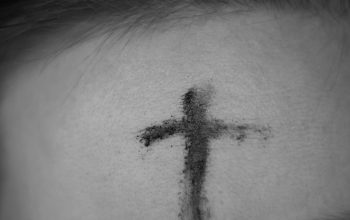Photo Credit: The New York Times
Between profane celebration and action against variation in gender identities
Stefanie Menezes, Lifestyle Editor
Pope Francis is often known for being the most “liberal” of the popes. In a fashion reminiscent of Jesus’ refusal to stone the adulterous woman in John 8:7-11, His Holiness refused to condemn homosexuality with the same severity as some of his predecessors, publicly asking, “If someone is gay and he searches for the Lord and has good will, who am I to judge?”
Pope Francis’ inviting attitude towards groups historically met with discrimination from the Church has made him a favourite of both progressive Catholics and 2SLGBTQ+ groups worldwide. However, on March 1, the “People’s Pope” made a statement that threw many of his liberal proponents for a loop.
Despite his popularity in more progressive circles, Pope Francis has maintained a consistent position against gender ideology over the past 11 years, warning of its role in “ideological colonization.” In 2021, the Holy See even issued a formal objection to a bill that called for the inclusion of gender theory in the Italian school curriculum and imposed penalties for discrimination based on sexual orientation. His recent remarks were part of a speech at this month’s Vatican Conference, in which he announced a request for studies into gender theory and deemed the subject an “ugly ideology of our times, which cancels out the differences and makes everything the same.”
This statement came less than a month after the funeral of transgender activist Cecilia Gentili at St. Patrick’s Cathedral in New York, organized by fellow activist Ceyenne Doroshow. The celebration was considered controversial for several reasons, the first of which was Doroshow’s omission of Gentili’s identity as a transgender woman and atheist, as well as the sacrilegious events that would take place during the ceremony following miscommunication with the church team.
The focus of the funeral itself appeared to be 2SLGBTQ+ activism: the sanctuary steps were decorated with pride flags, various eulogies centred around transgender politics and activism, and intercessory prayers included the petition for gender-affirming healthcare. These elements, though demonstrative of a blatant disregard for Church tradition and Catholic theology, do not cross the line into blasphemy. One can even reason that activism was an important part of Gentili’s life, so her loved ones wished to incorporate it into her funeral celebration, which did not take place during Mass.
However, during the liturgy, Gentili was called “the mother of all whores” and referred to as “whore” and “puta” by attendees, presumably referencing her history as a sex worker. There were interruptions throughout the ceremony with chanting and shouting from guests, and during prayers to the Blessed Virgin Mary, one individual shouted “Ave Cecilia” over the “Ave Maria” and proceeded to dance around Gentili’s casket.
According to Doroshow, Gentili wished to have her funeral at the cathedral because she considered the church “an icon” — and Church tradition does not preclude the celebration of funerals for transgender individuals. However, Gentili’s activism may have included her in the category of prohibited individuals, outlined in the Code of Canon Law as “manifest sinners who cannot be granted ecclesiastical funerals without public scandal of the faithful.” Still, the following comment from archdiocesan spokesman Joseph Zwilling illustrates the hesitation of the Church to apply that label, even in such cases: “every single [funeral that has taken place in St. Patrick’s Cathedral] has been for a sinner in need of God’s mercy.”
While not directly related, these two notable events are evident of the historical yet current, intensifying conflict between the Church and 2SLGBTQ+ activists. Gender theory has become increasingly influential in secular culture, but when it intersects with Catholic tradition, proponents and opponents are polarized to the extremes of their respective beliefs. Though Pope Francis’ statement has been called controversial, his warning of the divisive potential of gender ideology appears to hold some truth in the aftermath of Gentili’s funeral.
Historically and theologically, there has always been disagreement between the 2SLGBTQ+ community and the Catholic Church, and that is unlikely to end anytime soon. However, Pope Francis has demonstrated throughout his papal service that there is a place for queer-identifying individuals in the arms of the Church. At the same time, his statement should not be a surprise or betrayal to queer Catholics: The Church has been clear about its view on any ideology or alignment that usurps one’s Christian responsibility and faith. Many individuals, Catholic and secular alike, have been quick to call out Pope Francis’ words as discriminatory and disrespectful, but hesitate to apply the same criticism to an open violation of the sanctity of a religious place of worship. Though strong, his suggestion that gender ideology seeks to cancel out differences, including religious tradition and political dissent, should not be thrown out as religious fundamentalism. The profane nature of Gentili’s funeral celebration, the deception of the church by the ceremony’s organizers, and the immediate inclination of individuals everywhere to tell Catholics what can be learned about acceptance from this situation is indicative of the very “ideological colonization” that His Holiness describes.




